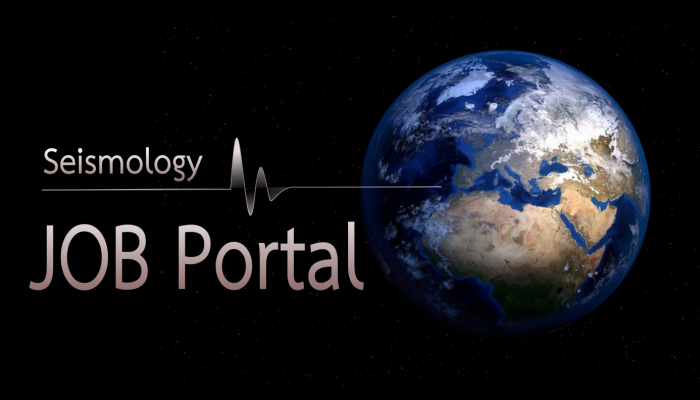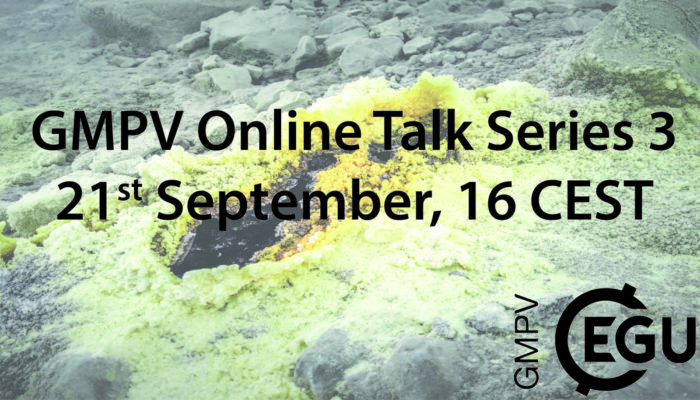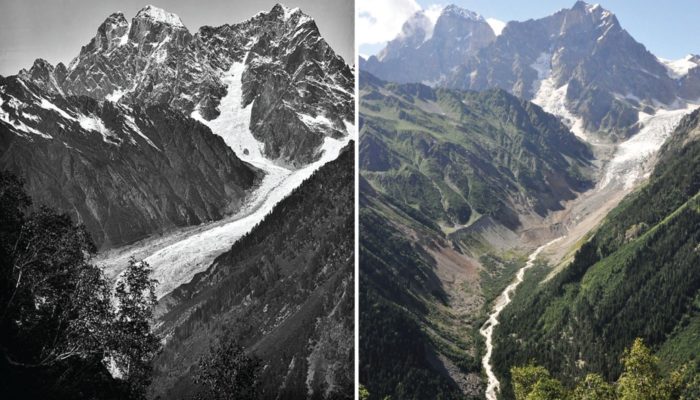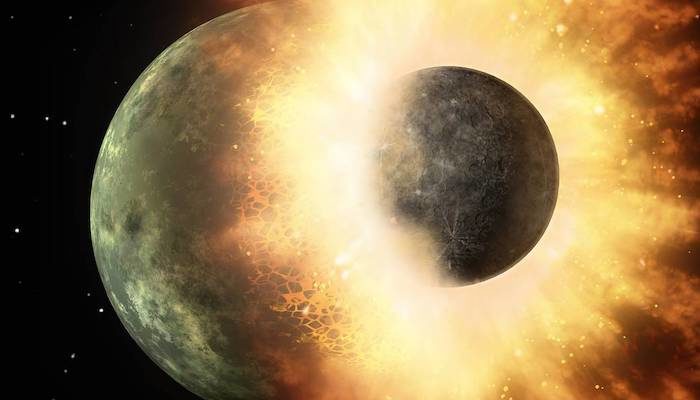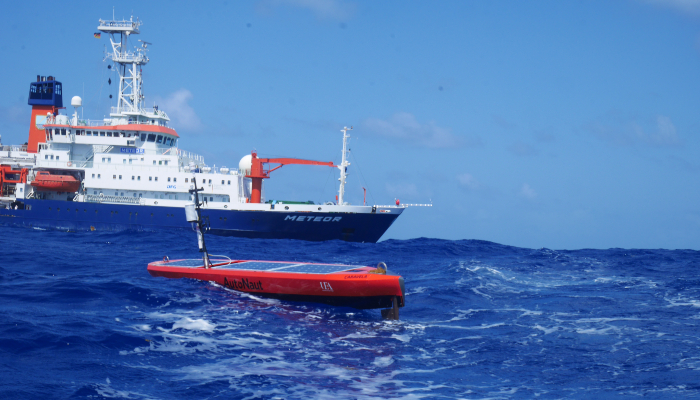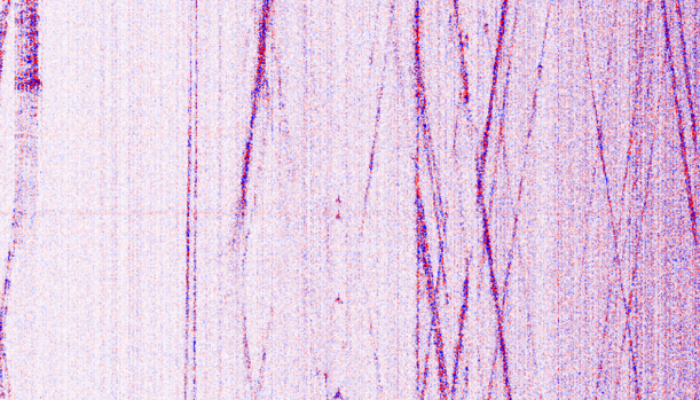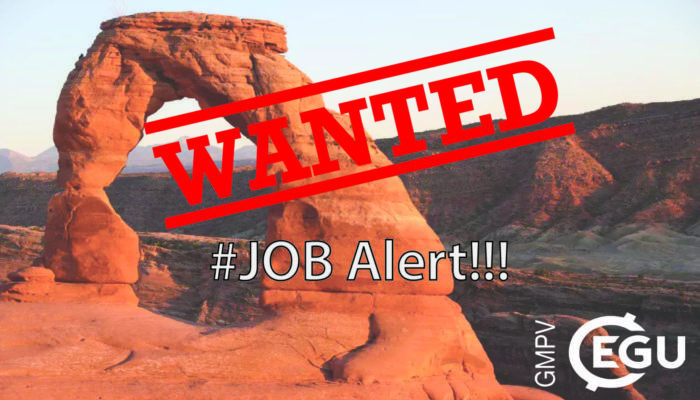On this page, we regularly update open positions in Seismology for early career scientists. Do you have a job on offer? Contact us at ecs-sm@egu.eu Please, note that other available research positions are displayed on the EGU Jobs Portal.
Geochemistry, Mineralogy, Petrology & Volcanology
GMPV ECS online talk series 3: 21st September
The 3rd edition of the Geochemistry, Minerology, Petrology and Volcanology division’s early career scientists talks will be on Monday 21 September 4pm CEST. Our speakers are (talk titles may be subject to changes): João Lages (University of Palermo) – “Constraints on mantle, slab and crustal contributions to majors volatiles and noble gases along subduction zones” Mara Murri (University of Milano- ...[Read More]
Cryospheric Sciences
Climate Change & Cryosphere – How the Chalaati Glacier (Georgian Caucasus) changed since the Little Ice Age
Chalaati Glacier is one of the largest glaciers in the Greater Caucasus and has undergone expansive mass loss. In this week’s blog post, Levan Tielidze tells us about Chalaati Glacier variations in the past centuries. His recent study was conducted based on surface exposure dating technique, dendrochronology (tree ring analysis), lichenometry, and satellite imagery. They found out that the Chalaat ...[Read More]
Geodynamics
The Sassy Scientist – The Cricetinae Model
Despite workshops and seminars and conference sessions and Zoom colloquia, of which Geraldine has attended many, one big question remains in geophysics: What drives plate tectonics? Dear Geraldine, Slab pull? Ridge push? Mantle drag? Continental keels? Super plumes? Mantle wind? Expanding Earth? God? Nope, there is only one explanation that truly fits the data and passes the common sense test: The ...[Read More]
Geodynamics
What happens when two worlds collide?
Why does the Moon have a very small core and Mercury one that makes up roughly 85% of the planet’s radius? Why are humans doing research in geoscience and not some evolved version of dinosaurs? In this week’s blog post, Harry Ballantyne, PhD student at the Department of Space and Planetary Sciences at the University of Bern, is talking about large-scale collisions and how they can answ ...[Read More]
Tectonics and Structural Geology
TS Must-Read – Dietz (1961) Continent and ocean basin evolution by spreading of the sea floor
Dietz 1961 “Continent and Ocean Basin Evolution by Spreading of the Sea Floor” paper was ground-breaking for plate tectonics. Almost literally, as it discussed the sea-floor spreading theory. Certainly away from the consensus at the time, this article is a classic in divergent tectonic settings and it may be an interesting piece of work for ECS working in tectonics and, more particularly, in conti ...[Read More]
Ocean Sciences
Eurec4a: Tales from the Tropics
As many seagoing oceanographers find themselves on land for the foreseeable future, we’ve decided to share a tale of a research cruise to fill that ship-shaped void. Back in January 2020, four research vessels ventured out into the Tropical North Atlantic as part of the Eurec4a and ATOMIC campaigns. Eurec4a’s aim: to investigate the couplings between clouds, circulation and convection ...[Read More]
Seismology
From light to waveform: how fiber-optic cables can be repurposed as seismic arrays
What is Distributed Acoustic Sensing (DAS) and why is it exciting? Any observational seismologist would agree that our understanding of subsurface structure and dynamics is in great part limited by our ability to acquire data at the right locations, with the necessary spatial and temporal resolution. However, although our ultimate objective would be to cover the Earth with high-quality, broadband ...[Read More]
Geochemistry, Mineralogy, Petrology & Volcanology
‘Job’ alert! GMPV is looking for a (deputy) early career scientist rep!
The Geochemistry, Mineralogy, Petrology and Volcanology division of the European Geosciences Union is looking for a new Early Career Scientist representative! The current rep will stand down at the General Assembly in 2021, but we’d like some handover time between reps so we’re advertising now with the aim of the incoming rep starting in ~November 2020. They’ll officially be the ...[Read More]
Natural Hazards
Pros & cons of an academic life
The life of an academic is supposed to be fulfilling. To study a specific topic, understand it and share the acquired knowledge with everyone is something of great societal value and should make anyone proud. But, everything in life comes with pros and cons. So, today we will try to talk about the beauty and the problems that come with being an academic. My name is Luigi Lombardo and today I will ...[Read More]

